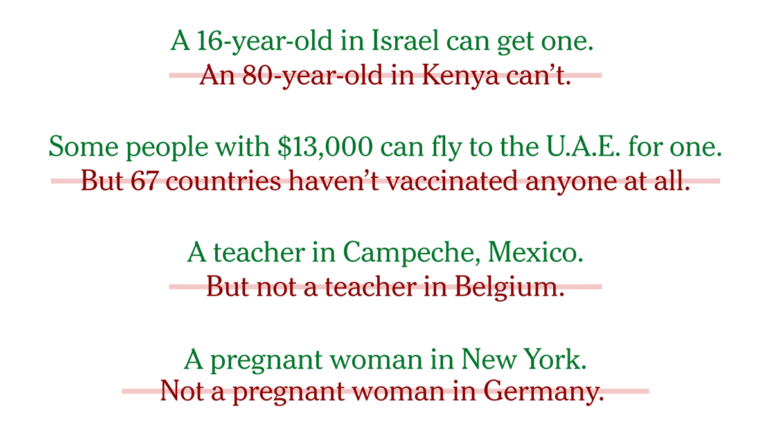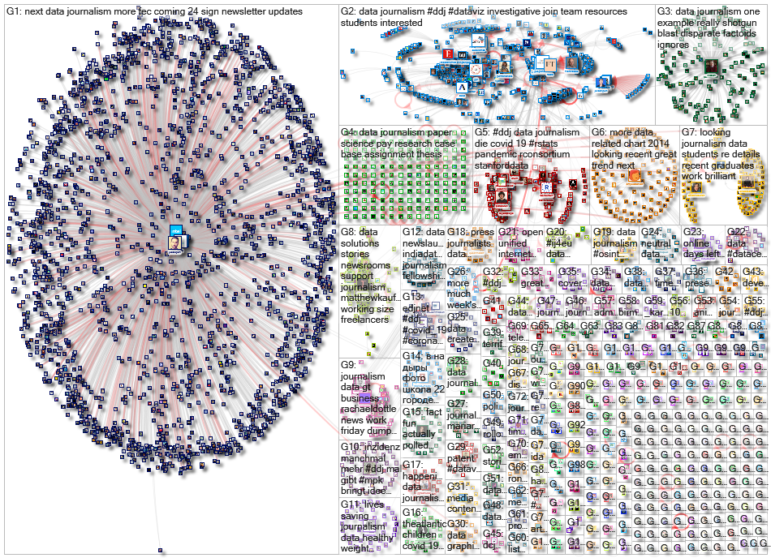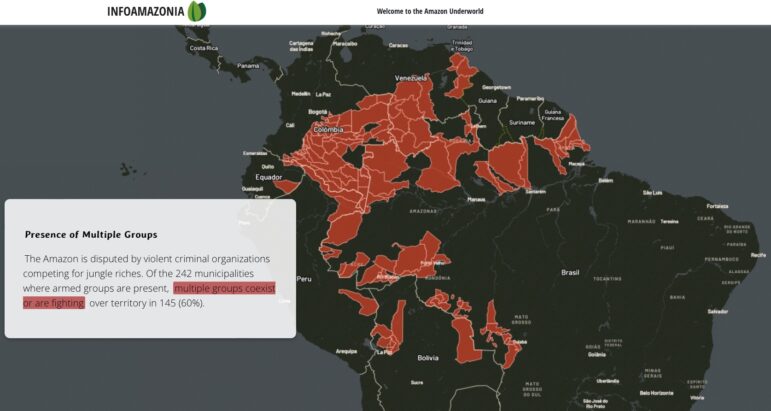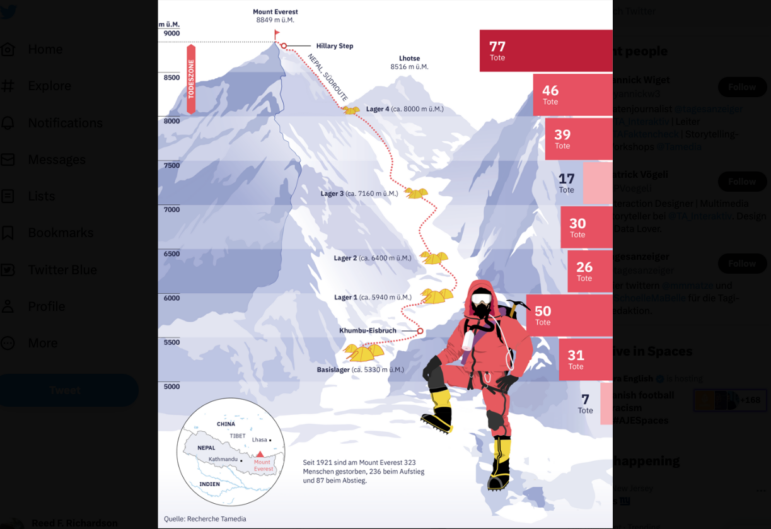

Data Journalism Top 10: March Madness, Trafficking Tigers and Fish, Color Palettes, Vaccine Inequality, Domestic Work
Read this article in
A lack of comprehensive data can seriously hinder efforts to track illicit activities. But persistent reporters will always find a way to get a glimpse of the real picture. Our NodeXL #ddj mapping from March 15 to 21, which tracks the most popular data journalism stories on Twitter, found GIJN member Oxpeckers investigating the illegal tiger trade in Europe and investigative journalist Ben Heubl offering advice on tracking unsanctioned fishing. In this edition, we also feature the Washington Post’s take on game-ending shots in college basketball, a Financial Times analysis of the nosedive of airline companies, a guide to color scales by visual storytelling ace Lisa Charlotte Rost, and a look at the burden of unpaid domestic work by data analyst Hassel Fallas.
Buzzer-beaters
What’s more exciting than a last-second match winner? Sports fans live for these moments. In celebration of the NCAA Division I Men’s Basketball Tournament, a popular US sporting event known as March Madness, The Washington Post made a graphic with the 37 buzzer-beaters — shots that clinched a victory with no time left on the clock — over the past 40 years.
Color and Data
Color palettes play a fundamental role in visual storytelling. But choosing the right one can be tricky. Datawrapper’s Lisa Charlotte Rost wrote a four-part blog series to give an overview of the different color scales to help you decide.
One in a Million
In mid-March, nearly 20 European countries put part of their COVID-19 vaccination rollouts on hold amid fears that the Oxford/AstraZeneca vaccine may be linked to blood clots. Most of them have since resumed the process after EU and British regulators said the vaccine was safe, amid arguments that the benefits of immunization outweigh any known risk. Reuters created a graphic to highlight how serious side effects are extremely rare in people who have had the jab.
Vaccine Inequality
More than 488 million people around the world have been vaccinated, according to The New York Times’ global tracker. But reporters also discovered that a person’s access to the vaccine is highly dependent on where they live, their age, occupation, health, connections, and general standard of living. The Times team explained vaccine inequality with this visual piece.
Failing the “Loyalty” Test
After World War II, the US government locked up more than 120,000 Japanese- Americans — including men, women, and children — in 10 wartime prisons because of their ethnicity. Many of the prisoners sent to the Tule Lake camp in Northern California had answered “no” to two questions on a loyalty test: Would they serve in the US military, and would they swear allegiance to the US against Japan? Some 75 years after the camp was closed, the Los Angeles Times spoke with survivors, once regarded as disloyal to the nation, who are trying to change the narrative by sharing their stories.
Until the Last Tiger Roars
Over the past century, the global population of wild tigers has decreased from about 100,000 to about 3,900. Although trade in this endangered species is forbidden, many of them (and when killed, their body parts) have entered the European black market. An investigation by GIJN member Oxpeckers revealed data on tigers in captivity in Italy and France, and highlighted some of the routes of illegal trade involving EU countries.
The Burden of Unpaid Domestic Work
During an ordinary week, people don’t usually work for more than 48 hours. But that’s if you’re not counting the cooking, cleaning, washing, running of errands, taking care of children, and other activities that most households have to do on the side. In Costa Rica women continue to bear the burden of unpaid domestic work, which consumes twice as much time for women when compared to men. Data analyst Hassel Fallas illustrated this trend in her latest article.
Tracking Illegal Fishing
West Africa has become a hot spot for large-scale fishing exploitation. This practice not only encourages piracy but can also have serious economic consequences, as well as safety concerns. Tech journalist Ben Heubl made this guide to help reporters and human rights analysts follow the trail while investigating illegal fishing and transshipment operations, which can be especially difficult to monitor when ships turn off their tracking systems.
https://twitter.com/benheubl/status/1372956124752777218
Missing Crime Data
The US government records thousands of hate crimes each year. In 2019, for example, there were 8,812 victims. But there’s a problem. Statistics gathered by the FBI are often categorized according to a single “motivation,” such as religion, sexual orientation, race/ethnicity, or gender identity. Following the Atlanta shootings, The Guardian’s Mona Chalabi argues that this data is flawed and doesn’t give the full picture; hate crimes can be motivated by more than one factor.
Airlines Grounded in Debt
Airlines are hoping for a boost in global travel this summer as vaccines continue to rollout, but some of the largest companies face an uncertain future after building up more than $300bn of debt. The Financial Times analyzed their chances of recovering from the biggest crisis in aviation history.
Thanks again to Marc Smith and Harald Meier of Connected Action for gathering the links and graphing them. The Top Ten #ddj list is curated weekly.
 Peter Georgiev is GIJN’s social media and engagement editor. Previously, he was part of NBC News’ investigative unit in New York. He also worked as a correspondent for Bulgarian National Television and his reporting has been published by The Guardian, Deutsche Welle, and other international outlets.
Peter Georgiev is GIJN’s social media and engagement editor. Previously, he was part of NBC News’ investigative unit in New York. He also worked as a correspondent for Bulgarian National Television and his reporting has been published by The Guardian, Deutsche Welle, and other international outlets.










